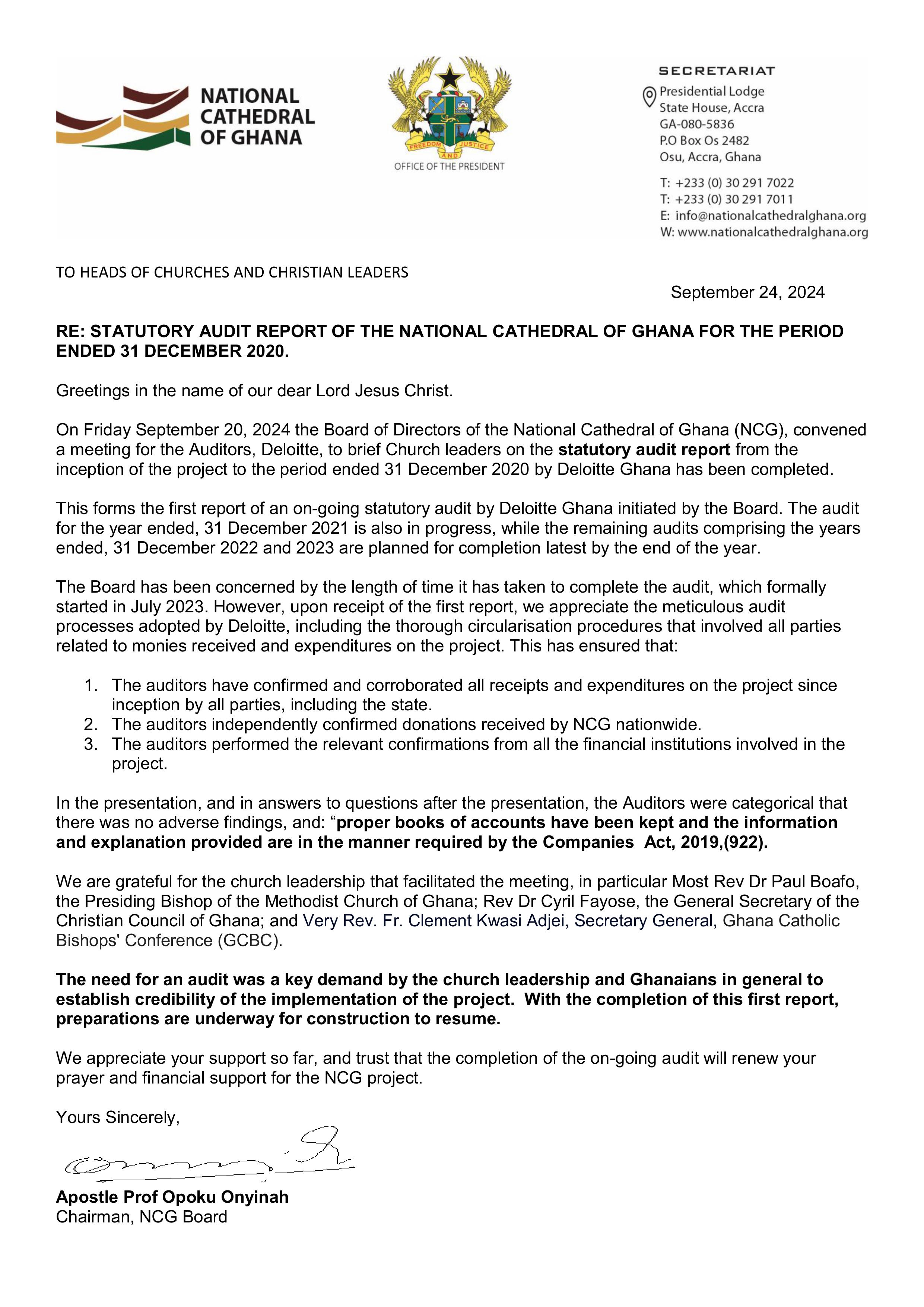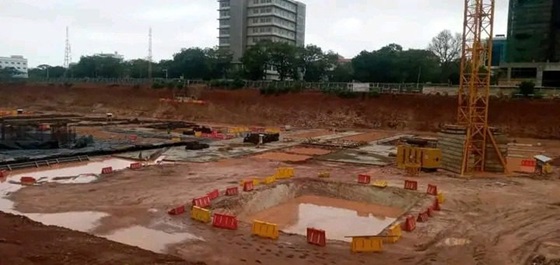Chairman of the Board of the National Cathedral, Apostle Professor Opoku Onyinah has hinted of the resumption of the project, a statement from his outfit has disclosed.
The announcement follows a meeting between members on the board of the National Cathedral and auditors from Deloitte Friday, September 20, 2024.
Amongst the issues discussed at the meeting was to brief leadership on the statutory audit report, covering the period from the project’s inception to December 31, 2020, which has now been completed by Deloitte Ghana.
Issues of corruption raised by a section of the public regarding the project led to the call for an audit to bring clarity to the questionable expenditures related to the project.
In the Tuesday, September 24, 2024 statement signed by the former Chairman of the Church of Pentecost, it said “the need for an audit was a key demand by the church leadership and Ghanaians in general to establish the credibility of the implementation of the project. With the completion of this first report, preparations are underway for construction to resume.
“We appreciate your support so far, and trust that the completion of the ongoing audit will renew your prayer and financial support for the NCG project.”
The National Cathedral Ghana project is a promise made by President Akufo-Addo to personally construct a cathedral to honour God if He made him win the 2016 elections.

He said the project was going to be funded by the private sector since it is not a State project and was not factored in any of government’s budget.
Meanwhile, government has since 2018, expended a whooping US$58 million on the project which is still in its foundation stage, with the site now turned into what others have described as a swimming pool.
An estimated $450 million is needed to complete the project and it is not clear if that amount is yet available to complete the construction.
By mid-2022, various church denominations had contributed GH¢2.21 million ($164,000) towards the construction of the national cathedral. Though a large sum, the amount is not sufficient on its own to pay the remaining costs of construction.





